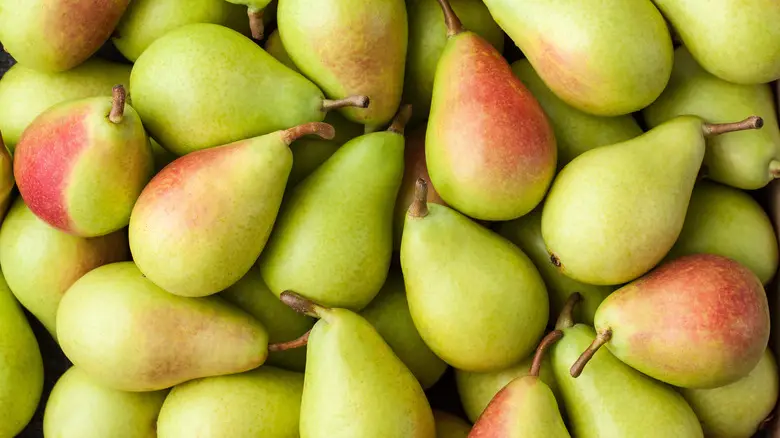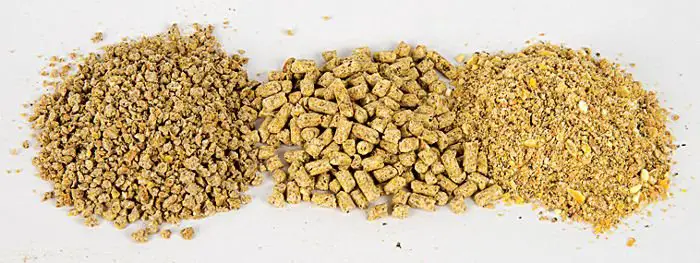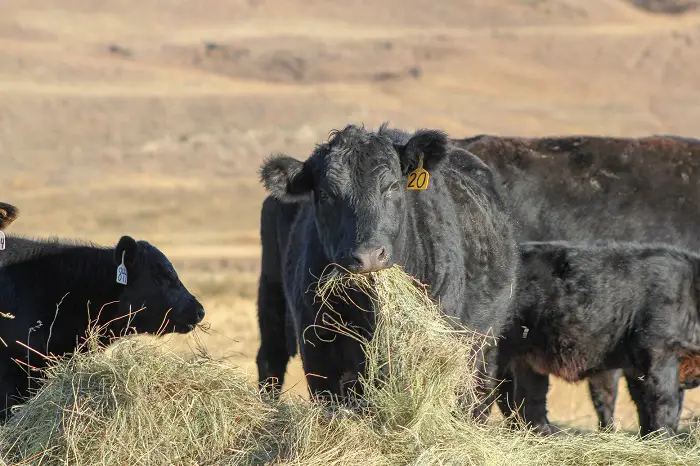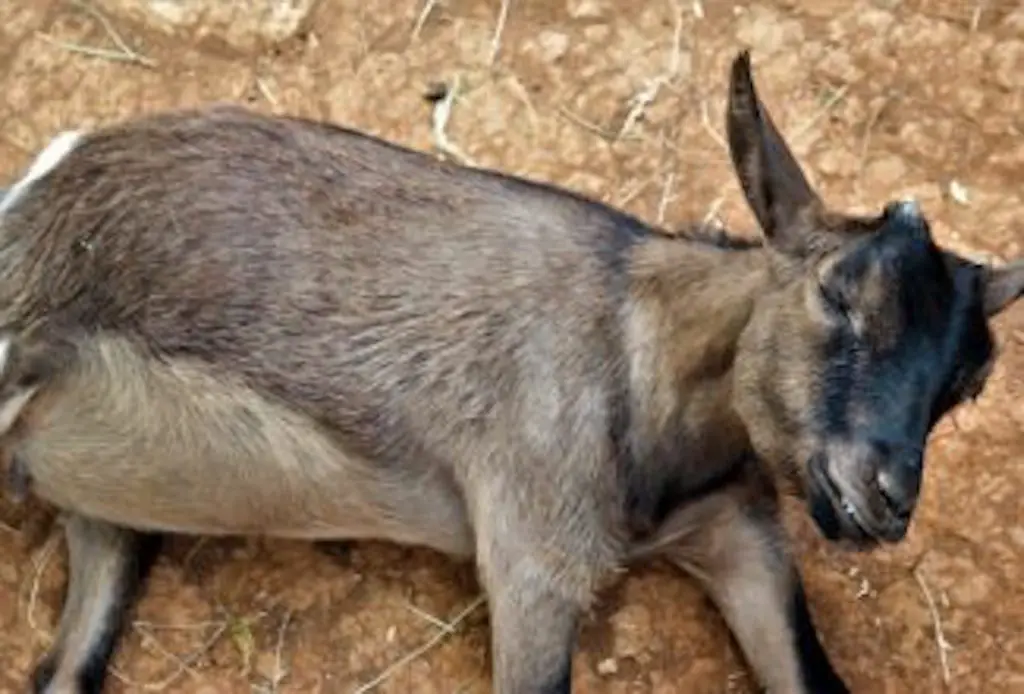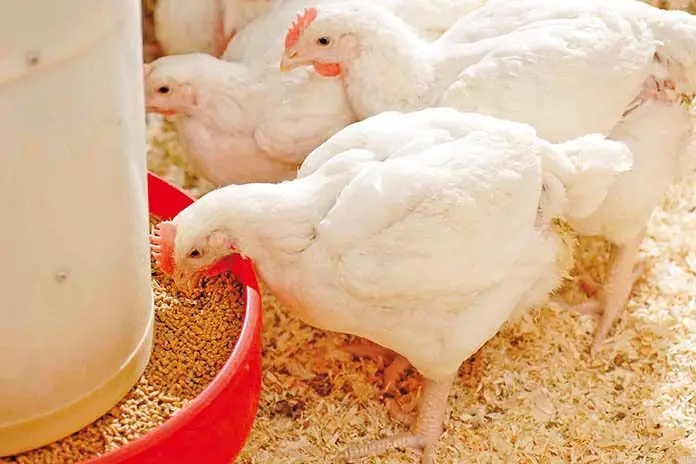The increase in livestock production has worsened the demand for livestock feeds, forcing farmers to look for supplementary feeds in order to boost their cow’s nutrition. Studies show that farmers are now using fruits and vegetables as supplements for their livestock. Below we look at whether fruits like pears can be added to the diet of cows in a bid to boost their nutrition.
Contents
Can Cows Eat Pear
Yes, cows can eat pears because they can be digested by the rumen and they also contain vitamins like vitamin C and K which are essential to a cattle’s diet. Pears should be given to cows in moderate amounts, this is because they contain a high water content and can cause diarrhea when consumed in excess. When giving pears to cows make sure that you cut them into small pieces so that cows do not choke when trying to eat them.
Health Benefits Of Pears To Cows
Aid With Digestion
Pears contain soluble and insoluble fiber which is known to aid with digestion. These fibers help to maintain bowl regularity and reduce the chances of constipation. Furthermore, they have a high water content which can also improve digestion.
Contains Anti-inflammatory Properties
Another health benefit of pears to cows is that it has anti-inflammatory properties that can help to speed up wound recovery and reduce the chances of arthritis. Pears also contain flavonoid antioxidants which help to reduce inflammation.
Contains Potassium
Pears contain potassium which is an important mineral that helps to improve muscle and nerve performance in cows. Potassium also aids in the creation of new cells in the body. Cows that have a high potassium content usually have stronger muscles.
Contains Vitamin C
Vitamin C is important since it helps to boost the immune system of a cow. Studies show that vitamin C is responsible for building antibodies which can then help fight or resist diseases.
Contains Vitamin K
Pears contain vitamin K which helps to build strong bones and reduce blood clots. When offering pears to cattle, make sure that you use moderate amounts as they can cause serious stomach problems.
Things To Consider When Using Pears As Supplements
Although pears have a number of health benefits, you should never use this fruit as a substitute for livestock feed since it doesn’t necessarily meet the dietary or energy requirements of cattle. Furthermore, pears should be given in moderate amounts to cows mainly because they have a high water content and when consumed in excess they can lead to diarrhea or other digestive problems. The last thing you need to consider is using pears that are 100% organic and free from pest and germs, meaning you always have to wash your fruits before giving them to cows.
Can Cows Eat Peaches?
Yes, cows can eat peaches but it is worth noting that the peach pit or stone is highly toxic to cows and should always be removed. The stone of a peaches contains cyanide which is highly toxic when ingested by cattle. Therefore, you should always start by removing the peach pit before giving the peaches to your cattle. Peaches should be given to cows in moderate amounts since they have the potential of causing stomach problems when consumed in excess.
Can Cows Eat Celery?
Yes, cows can eat celery and it can be digested by the rumen without any problems. Celery contains vitamin C and K as well as other minerals like potassium which are needed for overall development and performance of the cow. When offering celery to cattle it’s highly recommended that you cut it into small pieces and offer it in moderate amounts. This is because cattle can choke on the celery and also it can cause diarrhea when consumed in excess. Celery should only be offered as a snack rather than as a substitute for livestock feed. This is because it does not contain all the vitamins and minerals needed by a cow.
Can Cows Eat Apples?
Cows can eat apples but in moderate amounts. This is because apples can cause stomach problems to cows when consumed in excess. Apples should be used as a snack or treat to cattle and not as a substitute for their feed since they do not contain all the vitamins and minerals needed by the cattle.
Can Cows Eat Pear Cores?
Unfortunately cows cannot eat pear cores. This is because they contain a compound known as cyanide which is very toxic to cattle when ingested. Therefore, always make sure you remove the pear core first.
Can Cows Have Potatoes?
Yes, cows can have potatoes but in moderate amounts. This is because potatoes are starchy and when consumed in excess they can cause stomach problems. You should also avoid giving cattle potatoes that have a greenish color as they are toxic to cattle.
Can Cows Eat Cucumber?
Yes, cows can eat cucumbers and they are easily digested by the rumen when consumed in moderate amounts. Cucumbers are rich in fiber and they have a high water content that helps cattle to stay hydrated.
Can Cows Have Onion?
Unfortunately, cows cannot have onions mainly because they contain a toxic compound known as solanine. This compound can cause stomach problems in cattle or even lead to death. Some of the other vegetables that contain solanine are bell peppers and eggplants.
What Is The Best Vegetable For Cows?
Cows can eat a variety of vegetables but below is a list of some of the best vegetables for your cows. Most of these vegetables are rich in vitamin K and C which help to boost the immune system.
- Carrots
- Cucumber
- Cabbages
- Cauliflower
- Broccoli
NB: These vegetables should not be used as substitutes for cattle feed as they do not meet the energy requirements of cattle but instead use them as snacks or treats.
Conclusion
Cows can eat pears but, they should be offered in moderate amounts since they can cause diarrhea when consumed in excess. It is worth pointing out that pears cannot be used as a substitute for cattle feed as they do not meet the energy requirements of cattle.
